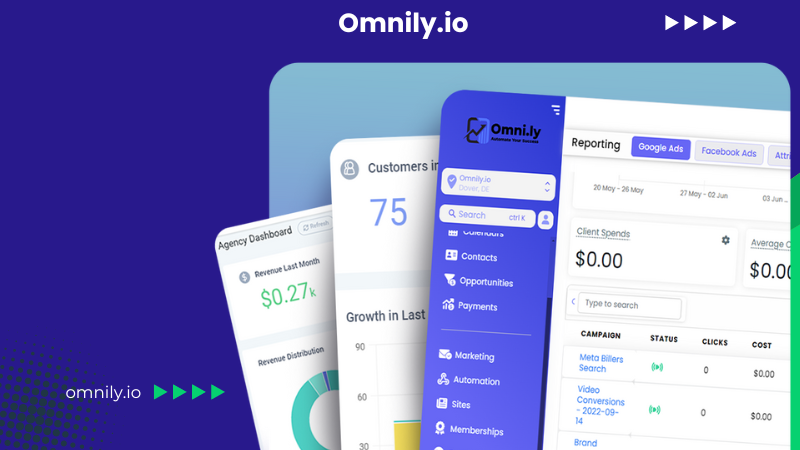Tracking Marketing Performance with Google Analytics in Omnily.io
In today’s fragmented digital ecosystem, tracking and interpreting your marketing performance can be a daunting task. The key to demystifying this complexity lies in leveraging powerful tools that not only gather data but also offer actionable insights. Omnily.io CRM, a robust Customer Relationship Management platform, seamlessly integrates with Google Analytics to provide businesses with a comprehensive view of their marketing efforts and customer behaviors. This integration empowers businesses to make data-driven decisions, enhancing both customer experience and ROI.
Omnily.io CRM is designed to elevate your business by streamlining marketing efforts, offering a suite of expert services that cater to diverse business needs. By integrating Google Analytics with Omnily.io, businesses can unlock a new realm of analytics capabilities, blending in CRM data with website analytics to provide a holistic view of the customer journey. This powerful combination allows for a more nuanced understanding of how marketing efforts are contributing to business objectives.
Benefits of Integrating Google Analytics with Omnily.io
The integration offers numerous benefits, including enhanced tracking of customer interactions across various touchpoints, improved segmentation for more targeted marketing campaigns, and the ability to measure the impact of specific marketing efforts with greater accuracy. This synergy between Omnily.io and Google Analytics enables businesses to identify trends and patterns in customer behavior, optimize their marketing strategies in real-time, and ultimately drive more effective customer engagement.
Features of Omnily.io and Google Analytics Integration
The integration boasts features that are quintessential for businesses aiming to refine their marketing strategies. Advanced tracking capabilities allow for the monitoring of user behaviors, such as page views, events, and conversions, directly within the Omnily.io platform. Customizable dashboards offer real-time insights into marketing performance metrics, enabling marketers to quickly ascertain the efficacy of their campaigns. Additionally, the ability to create and track custom segments ensures that marketing efforts are precisely targeted, enhancing both reach and impact.
Best Practices for Leveraging Google Analytics in Omnily.io
To maximize the benefits of this integration, there are several best practices that businesses should consider. Firstly, establishing clear objectives and KPIs is crucial for effective performance tracking. Additionally, regular review and analysis of the data collected through Google Analytics within Omnily.io can unearth valuable insights, guiding strategic adjustments. Ensuring accurate tracking setup, including proper tagging and configuration, is also essential for reliable data collection.
Real-World Applications and Case Studies
Several businesses have successfully leveraged the integration of Google Analytics with Omnily.io to enhance their marketing efforts. For instance, a retail company was able to significantly increase its online sales by using data from Omnily.io and Google Analytics to optimize its digital marketing campaigns. The insights gained from the integrated analytics helped the company understand customer preferences and purchase behaviors, allowing for more targeted and effective marketing strategies.
In another example, a B2B service provider utilized the integration to improve lead generation and nurturing processes. By analyzing user interaction data from Google Analytics within the Omnily.io CRM, the company could better segment its audience and tailor its communication, resulting in higher conversion rates and increased customer satisfaction.
In conclusion, the integration of Google Analytics with Omnily.io CRM presents a formidable tool in the arsenal of modern businesses aiming to elevate their marketing strategies. By harnessing the combined power of these platforms, businesses can not only streamline their marketing efforts but also achieve a deeper understanding of their customers, leading to more personalized experiences and improved business outcomes.


